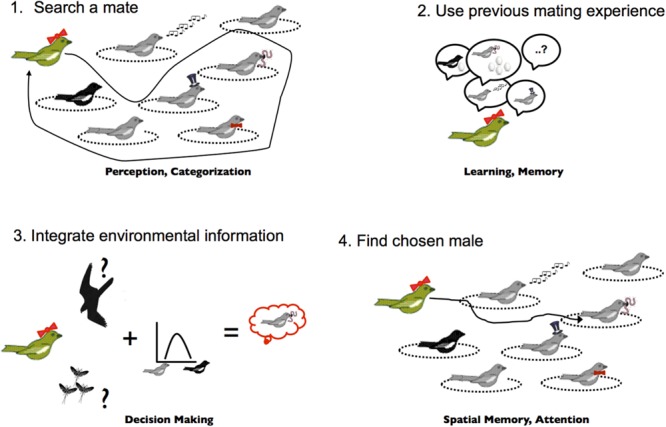FIGURE 1.

Mate choice and cognitive capacities that could hypothetically play a role. In bi-parental breeding songbirds, choosing an appropriate mate according to available male stock, previous breeding experience and actual environmental conditions is a behavior that will have drastic fitness consequences for any female and that is likely to rely on the interplay between various cognitive functions. Recognition of ornaments linked to different male qualities (e.g., good genes, parental care, nest defense, etc.) uses perception (visual and auditory) to detect male signals and categorization to group and identify male quality according to their ornaments (1). The use of previous breeding experience relies on past learning linking male ornaments and reproductive success from previous experiences (2). Mate choice itself, integrates all information available to the female including current ecology, mate options, and past experience supposedly through decision-making mechanisms (3). Finding the chosen mate, once the decision has been taken, probably relies on spatial memory to relocate the territory defended by the chosen male and endogenous attention to detect the chosen male from among the background of other males and environmental features (4).
